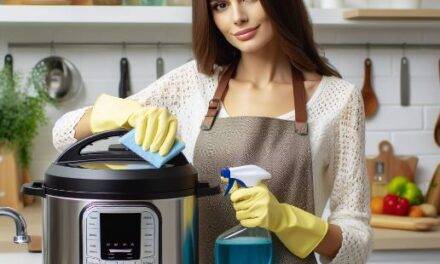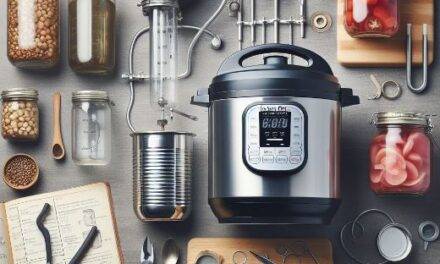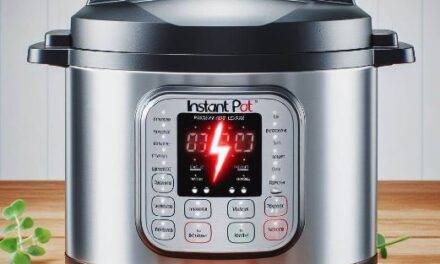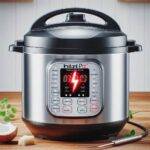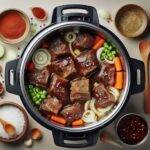Aluminium pressure cookers have long been a staple in kitchens worldwide, valued for their affordability and efficiency in preparing meals. However, concerns have arisen regarding their potential impact on health. In this article, we delve into the question: Is aluminium pressure cooker bad for health?
Introduction:
Welcome to our in-depth exploration of the age-old question: Is Aluminium Pressure Cooker Bad for Your Health? In the culinary world, the choice of cookware material has sparked numerous discussions, with aluminium often under scrutiny. In this post, we’ll delve into the science behind aluminium pressure cookers, addressing concerns and separating fact from fiction.
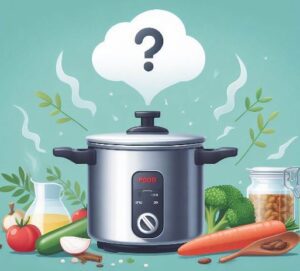
Potential Health Concerns
One of the primary concerns associated with aluminium pressure cookers is the possibility of aluminium leaching into food during the cooking process. Aluminium is a reactive metal, and when exposed to heat and acidic ingredients, it can migrate from the cookware into the food being prepared.
Research Findings
Numerous scientific studies have explored the health implications of aluminium exposure. Some research suggests a potential link between aluminium intake and adverse health effects, including neurological disorders and certain types of cancer.
Comparative Analysis
When comparing aluminium pressure cookers with alternatives such as stainless steel or ceramic cookware, it’s essential to consider the pros and cons of each material. While aluminium may offer quick heating and lightweight properties, other materials may be safer choices for long-term health.
Aluminium and Alzheimer’s Disease
There has been ongoing debate surrounding the alleged association between aluminium exposure and Alzheimer’s disease. While some studies have suggested a correlation, the scientific community remains divided on the matter, with many experts emphasizing the need for further research.
Preventive Measures
To minimize potential health risks associated with aluminium pressure cookers, several preventive measures can be taken. These include avoiding prolonged cooking times, refraining from using acidic ingredients, and opting for cookware with non-reactive surfaces.
Regulatory Standards
Regulatory agencies worldwide have established standards for cookware safety, including limits on the amount of aluminium permissible in food-contact materials. Consumers are encouraged to choose products that comply with these regulations to ensure their safety.
Consumer Awareness
Informed consumer choices play a crucial role in mitigating health risks associated with cookware. By educating themselves on the potential hazards of aluminium exposure and seeking out safer alternatives, individuals can make healthier decisions for themselves and their families.
Expert Insights
Nutritionists and health experts emphasize the importance of moderation and balance in dietary choices. While occasional use of aluminium pressure cookers may not pose significant health risks, prolonged or excessive exposure should be avoided whenever possible.
Practical Tips for Safe Cooking
In addition to choosing the right cookware, following proper cooking practices is essential for food safety. This includes thorough cleaning of cookware after each use, avoiding overheating, and storing food in appropriate containers to prevent contamination.
Impact on Food Quality
The choice of cookware material can also affect the taste and quality of food. While aluminium may impart a metallic taste to certain dishes, other materials such as cast iron or copper can enhance flavors and cooking outcomes.
Eco-Friendly Alternatives
For environmentally conscious consumers, eco-friendly cookware options are increasingly available. Materials such as cast iron, glass, and silicone offer sustainable alternatives to traditional aluminium pressure cookers without compromising on performance.
Cultural Perspectives
Cookware choices often reflect cultural preferences and traditions. In some cultures, aluminium pressure cookers are prized for their versatility and affordability, while in others, traditional clay or earthenware pots hold cultural significance.
Conclusion
In conclusion, the question of whether aluminium pressure cookers are bad for health is complex and multifaceted. While concerns regarding aluminium exposure exist, informed decision-making and adherence to safe cooking practices can help mitigate potential risks. By considering alternative cookware materials, staying informed about regulatory standards, and prioritizing food safety, individuals can enjoy the benefits of pressure cooking while safeguarding their health.
FAQs
1. Are aluminium pressure cookers safe to use?
- While aluminium pressure cookers are generally considered safe for occasional use, prolonged or excessive exposure may pose health risks.
2. How can I minimize aluminium exposure when using a pressure cooker?
- To minimize aluminium leaching, avoid cooking acidic foods for extended periods and consider using alternative cookware materials.
3. Is there scientific evidence linking aluminium exposure to Alzheimer’s disease?
- The relationship between aluminium exposure and Alzheimer’s disease remains inconclusive, with conflicting findings from various studies.
4. Are there any regulatory standards for aluminium in cookware?
- Regulatory agencies worldwide have established limits on the amount of aluminium permissible in food-contact materials to ensure consumer safety.
5. What are some eco-friendly alternatives to aluminium pressure cookers?
- Eco-friendly alternatives include stainless steel, cast iron, ceramic, and glass cookware, which offer similar performance without the potential health risks associated with aluminium.
For more information click here.


